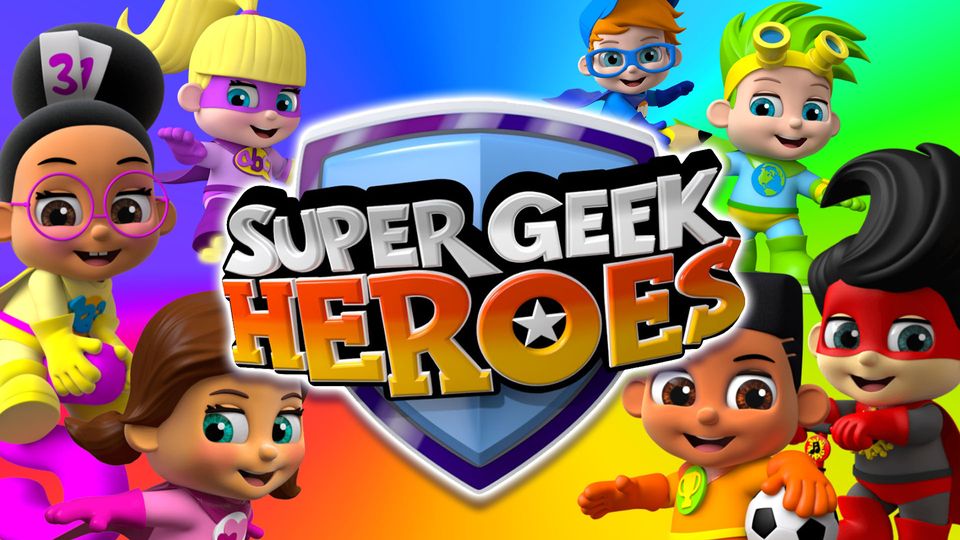FOR PARENTS:
Meet six pint-sized, pre-school Super Geek Heroes “on a mission to learn” and dedicated to taking your pre-school child along with them! These little knowledge explorers are interested in literally everything (from letters and numbers to colors of the rainbow) and they enjoy nothing more than sharing what they learn with all 2-5-year-olds in the viewing audience.
Super Geek Heroes is shaped by learning and developmental principles inherent in the first five years of life, including communication and language development, physical development and personal, social, and emotional development.
In each mini-episode, a Super Geek Hero presents information in ways that invites pre-school-age viewers to engage with and learn from. Episodes are paced and presented in a manner tailored to preschoolers’ capabilities and designed to reinforce the kind of knowledge that prepares young children for school … and for life. What sound does “b” make? What happens when red and blue are mixed? What makes a healthy snack? What does it mean to make a promise? Join the Super Geek Heroes as they explore the answers to these and a myriad of other questions.
- Watch with your child and talk about what you have seen. Similarly, talk about things and events from your daily lives.
- In the yard, in the kitchen, in the car, look and listen for objects, events, actions that relate to the kinds of lessons in Super Geek Heroes episodes and invite your child to think about them (e.g., challenge your child to read numbers and letters from license plates; ask you child to find two red things or yellow things in the back yard (or the kitchen, or out the car/bus/train window).
- When reading to your child, ask her to find words starting or ending with a specific letter… or ask her the number of the page you are looking at or how many pages in the whole book.
- If an object in an episode is identified by a different word than you use (e.g., elevator vs. lift) or spelled in a different way (e.g., curb vs. kerb), talk about it with your child … and don’t miss the opportunity to stress the idea that different people may look at the world in different ways (e.g. a mountain imagined by a child from Kansas probably differs from a mountain imagined by a child from Montana).
- Encourage your child to experiment, or try out new ideas or behaviors; when they try new things and make a mistake or mess (and they will), pause and talk about it; encourage your child to think of mistakes not as negatives, but as new and valuable information on the road to their next success.

